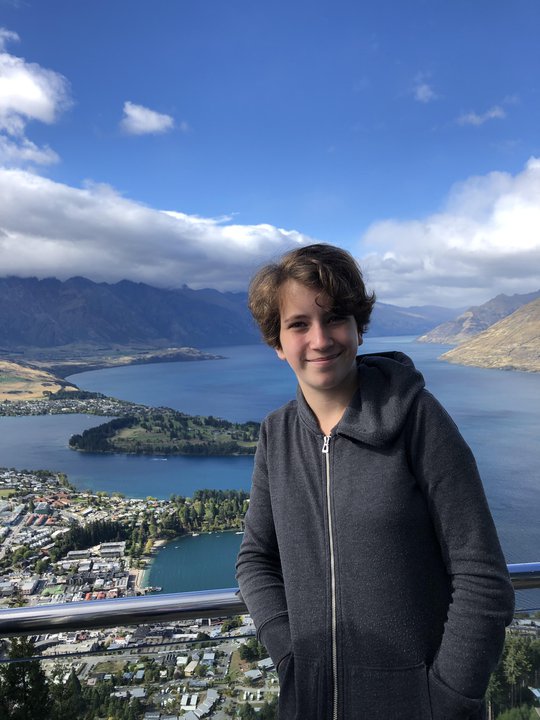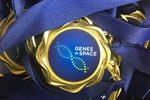GiS Spotlight: Junior Scientist Award winner Esmé Olshan-Cantin
The Genes in Space Junior Scientist Award honors the top five proposals from middle school teams. 2019 Junior Scientist Award winner Esmé Olshan-Cantin (13), a student at the Pierrepont School in Westport, Connecticut, recently shared some insights about her winning idea, which she developed with guidance from her mentor, Peniel Dimberu. Here, she explains the inspiration behind her proposal and shares some tips for future Genes in Space contestants.

Briefly explain your experiment: Were the elevated mitochondrial levels in astronaut Scott Kelly's blood really due to lack of oxygen? Could they instead be caused by the astronaut’s physical regimen?
Why did you choose to participate in Genes in Space? The first time I saw the sign-up sheet for this competition on my school’s cork board, I knew I wanted to try it. I’ve always been fascinated by anything relating to space, so I was excited by the opportunity to learn more about what it does to the human body. Unfortunately, the first year that I submitted, I spent a lot of time working on an experiment that in the end just didn’t pan out. I ended up rushing wildly to finish and did not do a great job. I knew I could do better, so I decided to try again this year!
How did you choose your topic? I was really excited when I first heard about NASA’s twin study involving Scott and Mark Kelly, as I knew it would definitely shed light on a lot of what happens to our DNA in space. When I decided to look for an experiment to submit to the contest, my first thought was to research the study more fully. In reports about the study, I found out about how Scott Kelly’s blood had more mitochondria in it, and the rest is history!What did you gain by participating in Genes in Space? Doing research for Genes in Space was a really fascinating process that I learned a lot from. Besides the specific genes I researched, I also gained a wider understanding of genetics in general and the workings of a PCR machine.
Do you have any advice for future Genes in Space contestants? Choose a topic that you’re interested in! You’re going to be spending a lot of time with this topic, so choose something you want to learn a lot about, and be creative! Not even the sky’s the limit!


